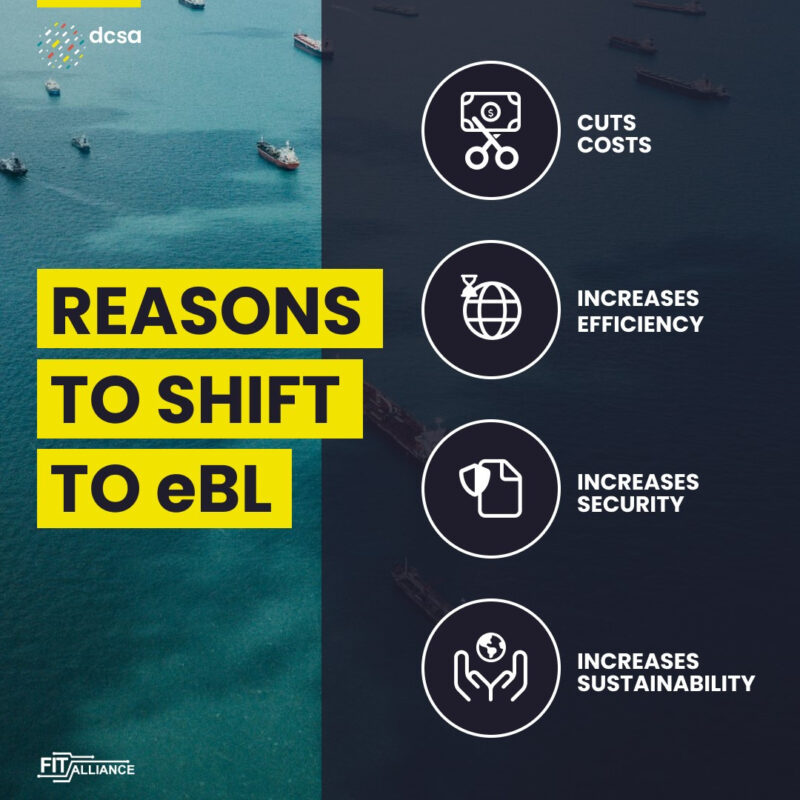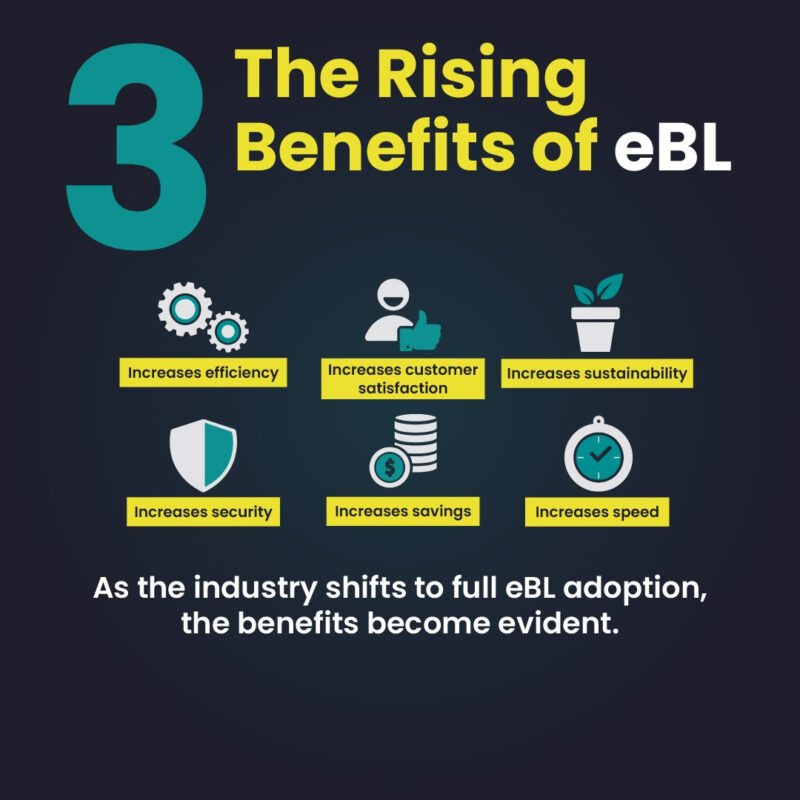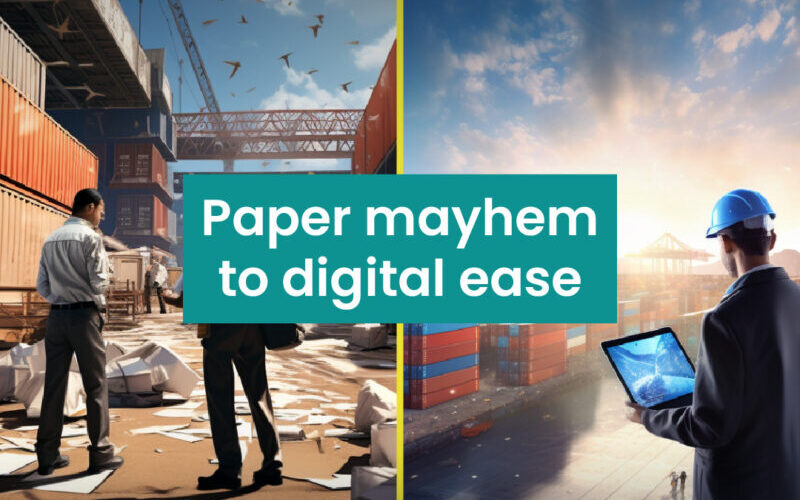Rakin Rahman, Staff Reporter at Port Technology International, sat down for an interview with Niels Nuyens, Program Director at Digital Container Shipping Association (DCSA). The discussion focused on the importance of digitalisation in shipping and the strides the industry has made in adopting modern technologies. Nuyens touched on how global trade would greatly benefit from digitalisation and he emphasised the importance of Electronic Bill of Lading (eBL) as a means of digitalising documentation processes in shipping.
How do you perceive the ability of eBL to effectively handle the current global trade dynamics, which involve exceptionally high shipment volumes, larger vessels, and expanded port capacities?
NN: Key benefits of digitalisation are related to process efficiencies, improved security leading to less issues, reduction of errors, etc. When volumes grow, this becomes more and more important. According to research and predications, we should expect global trade to triple by 2050.
The current system (including paper practices) is not able to support that. Digitalisation, with the benefits as mentioned before, is required, amongst other things, to support the growth. To my understanding the volumes are not exceptionally high today, but are expected to grow again in 2024.
eBL is a great example of changing old-fashion process through digitalisation. Larger vessel and expanded port capacities have, to my knowledge, not been taken into account to make a case for digitalisation, specifically for trade-documents. It would be great to have such insights.
Based on common sense, digitalisation provide the opportunity to make processes more efficient. If higher volumes are expected to be processed in a shorter timeframe through larger vessels and expanded port capacity, this could very be supported by digitalisation of the documentation processes, not limited to the eBL.


READ: Maritime Single Window: Embracing port call digitalisation
Do you believe the industry has been resistant to implementing eBLs and do you believe that this highlights a broader and more pervasive challenge within the ports industry, which is often known for its resistance to change, particularly in the context of digitalisation?
NN: Over the last 60-70 years the industry has changed significantly. Key examples are the standardisation of the containers, the growth of capacity of the vessels, i.e. mega-ships, and the introduction of autonomous ports/terminals.
However, container shipping has not yet taken full advantage of digitalisation. DCSA is the example of showing the great mindset of willing to transform digitally, from the inside. What we are reminded of, day-in-day-out, is the need of collaboration to make it happen. The success of global trade is reliant on working together.
Specifically, for eBLs, the industry has been faced with ‘chick-egg’ attitude. ‘My trade partners not being ready’ was raised as a key barrier to eBL adoption in the FIT alliance survey in 2022. Having many parties in the industry openly expressing their support of digitalisation in container shipping, however, reflects a great breakthrough.
The 100 per cent eBL by 2023 commitment of our members is not only a promise to the industry, but also an invitation to everyone involved in global trade to join the digitalisation journey. And again, everyone is needed. Digitalisation of the end-to-end documentation process can only be done if everyone joins. Everyone. If just one stakeholder isn’t ready, the digital flow of data stops.
READ: FIT Alliance launches eBL declaration to drive digitalisation

Niels Nuyens is a Program Director, Digital Container Shipping Association (DCSA), responsible for the development of digital standards for DCSA’s Data & Interface and Industry Blueprint initiatives. Niels works with carrier members and other industry stakeholders to align standards with common industry practices and promote adoption. Prior to joining DCSA, Niels served with Deloitte Consulting for 14 years as a digital transformation consultant for companies such as adidas, Ikea, Dutch Railways and Shell. He was also Operations Director for an Augmented Reality start-up for two years. Niels has an M.Sc. in Information Management from the University of Tilburg and completed an Executive Education program at Nyenrode.








